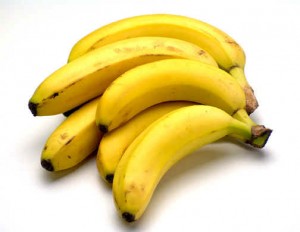I’m a Chiquita banana, and I’ve come to say
Poe said that the best place to hide something is in plain sight, and Peter Lynch suggested in his One Up on Wall Street that the reader’s own consumption patterns could provide a source of candidate companies. And, in keeping with our theme, we should give consideration to a company that sells fruit.
 Chiquita Brands is best known for its bananas, which compose about 60% of its total sales, although 2/3 of their bananas go to Europe. The balance of their sales is other produce, healthy snacks, and prepackaged salads, which the company refers to in its SEC filings with the transparently corporate name of “value added salads”.
Chiquita Brands is best known for its bananas, which compose about 60% of its total sales, although 2/3 of their bananas go to Europe. The balance of their sales is other produce, healthy snacks, and prepackaged salads, which the company refers to in its SEC filings with the transparently corporate name of “value added salads”.
Chiquita’s 2008 results were dragged down by a good-will writeoff and a discontinued product line, but setting the write-off aside as nonrecurring, we find that the firm had earnings of $50 million last year, and YTD their earnings are $117 million. The company claims that most of its earnings come from the first and second quarters, and since the 4th quarter results have not come in, we may accept $117 million as roughly the earnings for the year. Furthermore, depreciation has exceeded capital expenditures by about $10 million in the last couple of years. This translates to a P/E ratio of about 6.
Banana farming is a labor-intensive process, and shipping them requires refrigerated cargo ships. Chiquita claims to have hedges to address an increase in the cost of shipping, but it observed in its latest 10-Q that banana prices in North America did not decline alongside the lower cost of shipping, although volume did slightly increase. Since export bananas are primarily grown in the tropics, it stands to reason that all banana exporters are in the same banana boat as far as fuel costs.
There is, though, a strain of soil fungus called Fusarium, which has decimated the export bananas in Southeast Asia, and many people theorize that it is only a matter of time before it hits Chiquita’s plantations in Latin America, a fate that we have already narrowly avoided because the DEA was considering using it to eradicate cocaine plantations. If that happens, of course, all bets are off. Even if the value-added salads are profitable, the jingle “I’m a value-added salad and I’ve come to say…” doesn’t quite have the same ring to it.
According to wikipedia, Chiquita has been fined by the government for paying off Colombian militias which the US government considers terrorists but which Chiquita considers as just gangsters running a protection racket. Furthermore, a French NGO claims that Chiquita’s field workers in Costa Rica are treated abominably, including pesticide exposure and using a gang of thugs to intimidate them. So, investors who believe in socially responsible investing should look elsewhere. But some of us have learned from the examples of Microsoft, Phillip Morris, and Halliburton that there is definitely an “evil premium”, and so investors can possibly overlook this too.
So, to review, Chiquita Brands: cheap but evil.
Update 2/23: It would seem that the firm has managed to lose money in the 4th quarter, although not enough to erase that much in profits from earlier in the year. Full year earnings are about $2 a share, which would put my estimated P/E ratio at about 7.5, although with the recent price action 7 even is available.
Leave a Reply